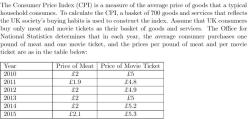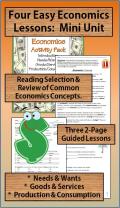What subjects do you need to study Managerial Economics?
Managerial Economics is a branch of economics that applies economic theories and concepts to decision-making in business management. The course curriculum for Managerial Economics may vary among universities, but it generally covers a range of subjects that provide a foundation in economic principles and their application in managerial decision-making. Below are common subjects you might encounter in a Managerial Economics course:
Microeconomics Fundamentals:
- Overview of basic microeconomic concepts such as supply and demand, market structures, elasticity, and consumer behavior.
Macroeconomics Concepts:
- Introduction to macroeconomic principles, including GDP, inflation, unemployment, and monetary and fiscal policies.
Quantitative Methods:
- Application of quantitative tools and techniques, such as statistical analysis and mathematical modeling, to managerial decision-making.
Cost and Production Analysis:
- Study of cost concepts, cost functions, and production theory. This includes understanding how costs vary with production levels.
Market Structure and Pricing:
- Analysis of different market structures (perfect competition, monopoly, oligopoly) and the determination of optimal pricing strategies.
Demand Analysis:
- Examination of factors influencing demand, elasticity of demand, and forecasting techniques to estimate future demand.
Supply Chain Management:
- Understanding the coordination and optimization of the various stages in the production and distribution of goods and services.
Risk and Uncertainty:
- Exploration of decision-making under conditions of uncertainty, risk assessment, and the application of decision theory.
Game Theory:
- Introduction to game theory and its application to strategic decision-making in business situations involving multiple players.
Managerial Decision-Making:
- Application of economic principles to managerial decision-making, including resource allocation, pricing, and strategic planning.
Government and Business:
- Examination of the role of government in business, including regulations, antitrust policies, and their impact on managerial decisions.
International Economics:
- Study of international trade, exchange rates, and the impact of global factors on managerial decisions.
Environmental Economics:
- Consideration of environmental issues and the economic aspects of sustainable business practices.
Ethics in Managerial Decision-Making:
- Exploration of ethical considerations in business decision-making and the social responsibility of businesses.
Case Studies and Practical Applications:
- Analysis of real-world case studies and practical applications of managerial economics concepts in various industries.
The curriculum may also include elective courses or specializations based on the specific program or university. It's essential to check the detailed course offerings of the institution you're interested in for a more accurate understanding of the Managerial Economics curriculum.
Which subjects are essential to comprehend Managerial Economics?
To effectively comprehend Managerial Economics, several key subjects are essential. These subjects provide the necessary foundation and tools for analyzing economic concepts and applying them to decision-making within a business context. Here are some of the most important:
Microeconomics:
- Demand and Supply analysis: Understanding how market forces influence prices and quantities is crucial for making informed decisions about pricing, production, and marketing.
- Cost analysis: Knowledge of different cost concepts (fixed, variable, marginal) allows managers to optimize resource allocation and minimize costs.
- Market structures: Understanding the different types of market structures (perfect competition, monopolistic competition, oligopoly, and monopoly) helps managers develop effective strategies based on the competitive landscape.
Macroeconomics:
- Aggregate economic trends: Understanding GDP, inflation, unemployment, and other macroeconomic indicators helps managers anticipate market changes and adjust their business strategies accordingly.
- Government policies: Knowledge of fiscal and monetary policies helps managers understand their impact on business operations and formulate appropriate responses.
- International trade: Understanding the dynamics of international trade allows managers to identify opportunities and navigate challenges in global markets.
Quantitative Methods:
- Mathematics: Basic math skills, including algebra, calculus, and statistics, are essential for analyzing economic data and solving business problems.
- Econometrics: This specialized field applies statistical methods to economic data, allowing managers to quantify relationships, test hypotheses, and make data-driven decisions.
- Business Modeling: The ability to build and analyze economic models is critical for forecasting future scenarios, evaluating alternative courses of action, and making optimal choices.
Other Relevant Subjects:
- Accounting: Understanding financial statements and accounting principles is crucial for analyzing the financial performance of a business and making informed investment decisions.
- Business Law: Knowledge of legal contracts, regulations, and ethical considerations helps managers comply with legal requirements and conduct business responsibly.
- Management Science: This field provides tools and techniques for decision-making, optimization, and problem-solving, which are valuable for managing resources and operations effectively.
While these subjects are essential to understand the core concepts of Managerial Economics, it's equally important to develop strong analytical skills, critical thinking, and problem-solving abilities. The ability to apply economic principles to real-world business scenarios and make informed decisions based on economic analysis is key to success in management and leadership roles.











